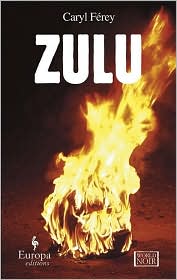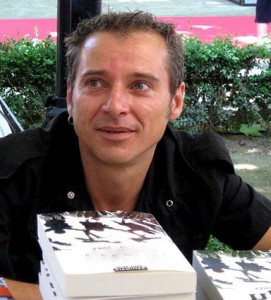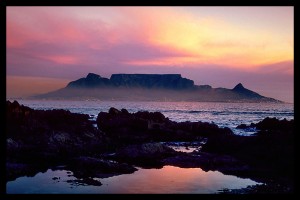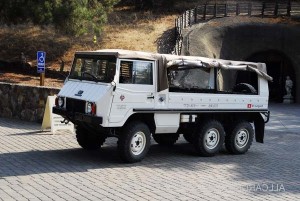Note: This novel was WINNER of the Grand Prix de Littérature Policière in France for being the Best Crime novel of the year in 2008. It also was WINNER of four other prizes, including the Novel Obs Crime Fiction Prize, the Critics’ Prize for Mystery, the Elle Readers Grand Prix, and the Quais du Polar Readers Prize. Newly translated into English, this novel has just recently become available in English for the first time.
“Listen, I can’t start an investigation into a street robbery when I have twelve rapes, one homicide, and dozens of assaults reported last night alone. But tell your mother not to worry. Usually, anyone who attacks an old lady doesn’t have long to live.” –Police Captain Walter Sanogo.
Winner o f major literary awards throughout France, where author Caryl Ferey lives, Zulu is a powerful novel set in South Africa in the early 1990s when the country is in its transition between the rule of apartheid, governed by white Boers, and the rule of Africans, under the leadership of Nelson Mandela, newly released from prison. The transition is not exactly smooth, no matter how much the leadership may have hoped for it, and the transfer of power is not automatic. The ANC (African National Congress, under Mandela) needs the former white rulers to maintain control in many areas – presumably, to preserve the peace – and these whites quickly establish their own militias to protect themselves and to act on “infractions” or threats to the “peace” as they see it. To the surprise of many, the defeat of apartheid inspires other African movements, like Inkatha, also to challenge the ANC, leading to civil conflict for power within the black movements. These conflicts, in addition to the long-standing resentments against apartheid, lead ordinary black citizens to be unsure where their loyalties really lie, and as violence grows, not only between the conflicting black movements but also among the conservative Boers and the black community, no one can be really sure where the violence afflicting the cities really originates.
f major literary awards throughout France, where author Caryl Ferey lives, Zulu is a powerful novel set in South Africa in the early 1990s when the country is in its transition between the rule of apartheid, governed by white Boers, and the rule of Africans, under the leadership of Nelson Mandela, newly released from prison. The transition is not exactly smooth, no matter how much the leadership may have hoped for it, and the transfer of power is not automatic. The ANC (African National Congress, under Mandela) needs the former white rulers to maintain control in many areas – presumably, to preserve the peace – and these whites quickly establish their own militias to protect themselves and to act on “infractions” or threats to the “peace” as they see it. To the surprise of many, the defeat of apartheid inspires other African movements, like Inkatha, also to challenge the ANC, leading to civil conflict for power within the black movements. These conflicts, in addition to the long-standing resentments against apartheid, lead ordinary black citizens to be unsure where their loyalties really lie, and as violence grows, not only between the conflicting black movements but also among the conservative Boers and the black community, no one can be really sure where the violence afflicting the cities really originates.

With this as his background, author Caryl Ferey writes a powerful novel focused on three Cape Town police officers—Ali Neuman, a black officer who has survived an inhuman massacre which killed his parents and his fifteen-year-old brother (who was “necklaced with a tire filled with gasoline, which, when ignited, burned him in an agonizing death); Brian Epkeen, a free-wheeling white officer whose family was involved originally in the establishment of apartheid and who looks for solace now within the department as a way to assuage the emotional conflicts brought on by his faithless wife and his teenage son, who not only disrespects him but also has robbed him; and Dan Fletcher, their white protégé, whose wife has just undergone chemo for cancer, and who has two small children dependent upon him.
The story unwinds with the tension one would expect of a novel which has won as many prizes as this one has, and the glimpses of South African life keep the reader intrigued as the investigation of the death of a young woman, found mutilated in the Botanical Gardens of Kirstenbosch unfolds. Soon the team is investigating yet another, similar death. Life is so uncertain in Cape Town, at this point, that “Fear of criminals has replaced fear of blacks in most well-to-do whites, who had retreated to their laager,” and many wonder “How could the leading democracy in Africa be the most dangerous country in the world?” With 18,000 murders a year, 26,000 serious assaults, and 60,000 (reported) rapes, it is no wonder that there are over five million guns are in the hands of just forty-five million citizens.
 Investigation of the seemingly clear-cut murders soon expands, revealing that these deaths are not so simple. Both women had high levels of an unusual chemical in their systems, which, in both cases, would have led to an inevitably quick infection and death from an endemic disease, and it becomes clear to investigators that someone or a group of someones is using these victims, and others who soon turn up dead, as guinea pigs for some bizarre and sadistic medical experiment. As the action unfolds, the involvement at high levels of society becomes clear, and the complicated interactions among all facets of society both protect and threaten to reveal the complicity of important members of society.
Investigation of the seemingly clear-cut murders soon expands, revealing that these deaths are not so simple. Both women had high levels of an unusual chemical in their systems, which, in both cases, would have led to an inevitably quick infection and death from an endemic disease, and it becomes clear to investigators that someone or a group of someones is using these victims, and others who soon turn up dead, as guinea pigs for some bizarre and sadistic medical experiment. As the action unfolds, the involvement at high levels of society becomes clear, and the complicated interactions among all facets of society both protect and threaten to reveal the complicity of important members of society.
The action moves at warp speed, and the high body count, both as a result of the police action and as a result of militia activity grows exponentially. The author keeps the suspense and tension high as he shows the many levels of corruption which are involved with a couple of seemingly simple murders. The pharmaceutical industry, the local Mafia, and many high-level Boers do not benefit from a legitimate black government, and these opponents of peace have more money at its disposal than do other, more legitimate powers.

As powerful and dramatic as this novel is, it is also so upsetting in its depiction of sadistic cruelty against human beings that many readers will be sickened by the level of violence. How human beings could inure themselves, participate in, or tolerate such horrendous cruelty is a question which many readers will ponder. How others could hold out hope for any kind of reconciliation with the practitioners of such inhumanity on both sides will remain an open question. Readers will find this a fine, many-leveled novel as South Africa becomes a democratic nation, but many will also be appalled by the depths to which some characters will descend as the new “democracy” takes hold.
Notes: The author’s photo appears on http://bibliotheques.agglo-annecy.fr
Table Mountain, referred to many times in the novel, is shown in this photo by Martin Wiercbicki, from www.photosbymartin.com
The men who are involved in the pharmaceutical experiments in this novel are constantly connected to the ownership of a Pinzgauer Steyr Puch 712 K off-road vehicle. The K series is the hard-top version of the soft-top M series, which is shown here: www.allcarcentral.com. For “car nuts,” like me, here’s a terrific video of the Pinzgauer Steyr Puch 712K in action, as it goes from high speed on the road to off-road driving over rough terrain, high water, and challenging conditions. http://www.youtube.com The video was taken in September, 2009, in Vancouver. (Wish I’d been there.)
ALSO by Ferey, UTU
